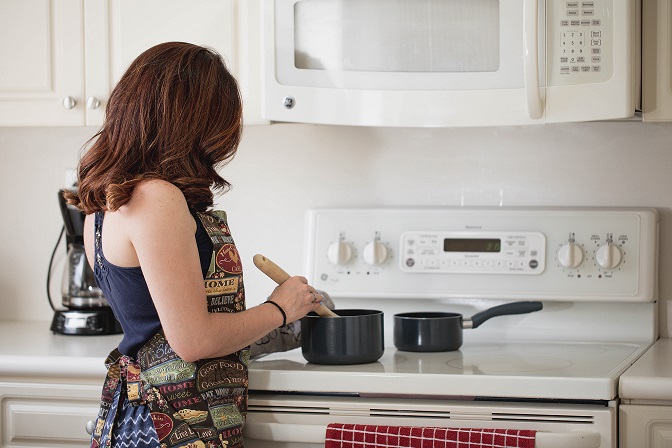Women working hard at home struggle with their mental health, study shows.
There’s no denying that women work hard doing unpaid tasks around the home. From cooking and cleaning to caring for the kids, women are constantly on the go. And while it’s often taken for granted, the truth is that women’s hard work is essential to keeping the home running smoothly – just maybe not their mental health according to researchers.
Among worldwide labor studies, there is a pervasive amount of woman doing more unpaid work than men, according to research. These things include being the primary caregivers for their children, completing housework and homework and participating in caring for elderly family members. And the toll this is taking on their mental health and wellbeing is quite significant. Many women don’t even have the option to work outside of the home as they’re taking on the brunt of this unpaid labor while their significant others are at their places of employment bringing home a paycheck.
A meta-analysis of more than 19 studies has now shown that this has taken on a worsening of mental health among women. The analysis covered more than 70,000 people in the studies reviewed. The more of this labor women do, the worse their mental health, found the data published recently in The Lancet Public Health.

Part of the reason that this is the case is that women often get diagnosed with mental health conditions more so than men do – biologically they handle stress differently and can commonly suffer from anxiety. Covid has also not helped this situation, as more women have stayed home during the pandemic.
“In many ways, Covid has stalled or in some instances reversed some of the hard-won gains in gender equality,” said Jennifer Ervin, an author of the study and a Ph.D. candidate at the Center for Health Equity at the University of Melbourne in Australia. But, she added, “The results show that reducing the disproportionate unpaid labor burden on women, by enabling men to take on their equal share, has the potential to improve women’s mental health.”
There is much to do every day, which the authors cite as a “time poverty,” or what is commonly referred to as “not having enough hours in the day” to get everything done.
In the United States, women do an average “4.5 hours of [homework and childcare] a day, compared with 2.8 hours for men, according to data from the Organization for Economic Cooperation and Development (this is over all levels of employment). In Greece, women do “4.3 hours while men do an hour and a half.” Even in the most gender-equal countries, like Sweden, women do 50 minutes more a day than men, so there is more of a balance in other countries.
Societal expectation, in general, also play a role (which, was mentioned was worsened during Covid). Traditional gender roles have made it such that women spend more time caring to the children and men work more on productive things with the kids, cooking, cleaning, etc. This is shifting, but still prevails.
In any case, in order to improve the mental health of women, there will have to be some major societal shifts. And these things take time. The pandemic hasn’t helped.
Sources:
Why Unpaid Labor Is More Likely to Hurt Women’s Mental Health Than Men’s


Join the conversation!